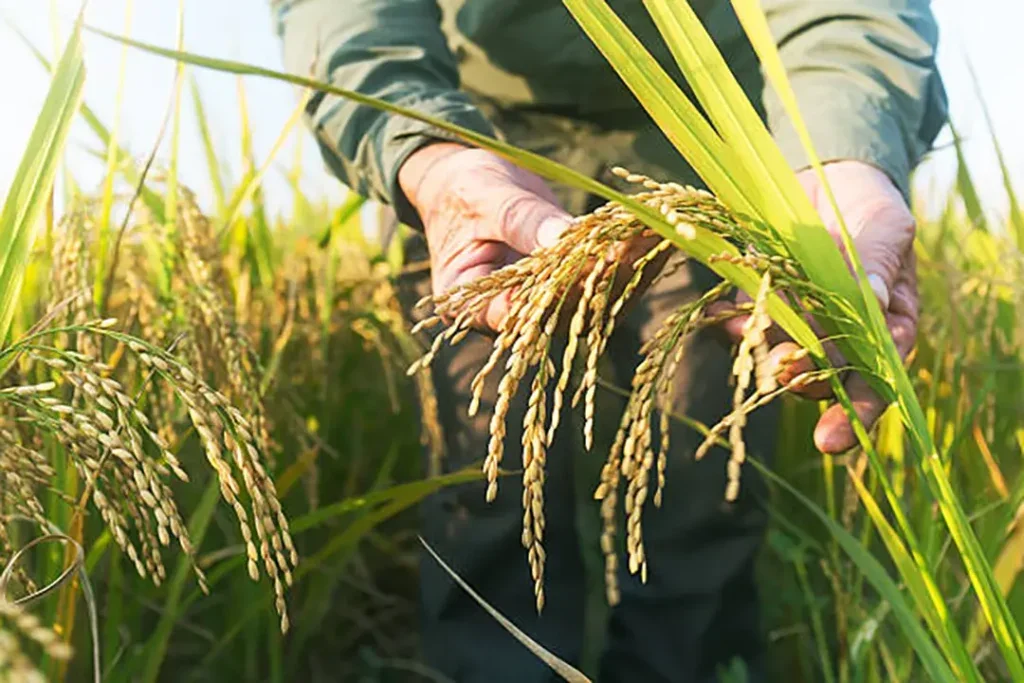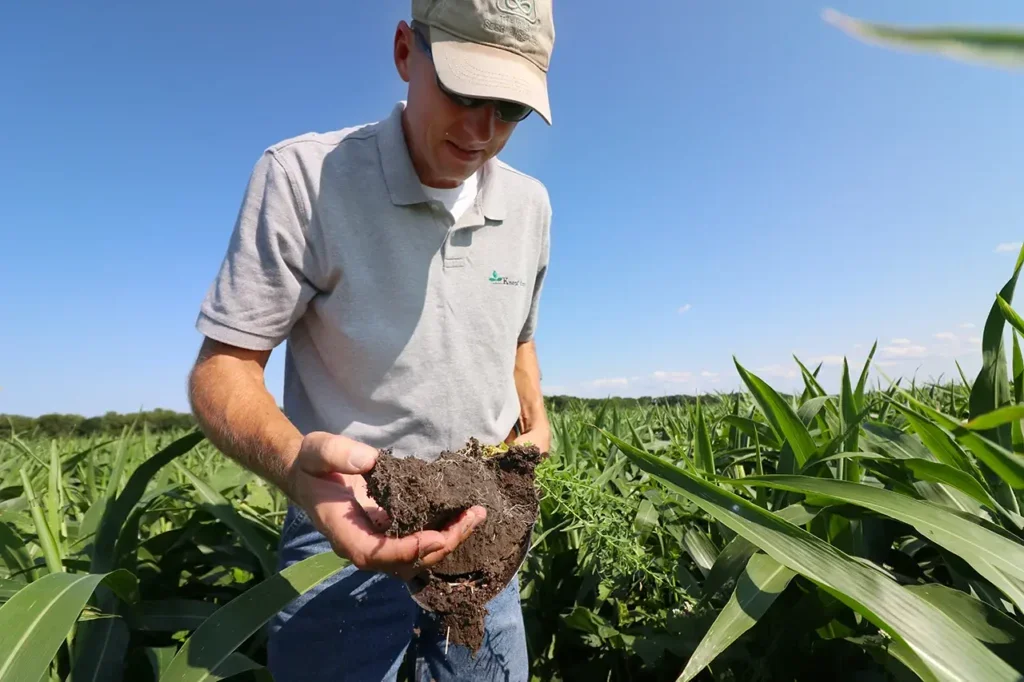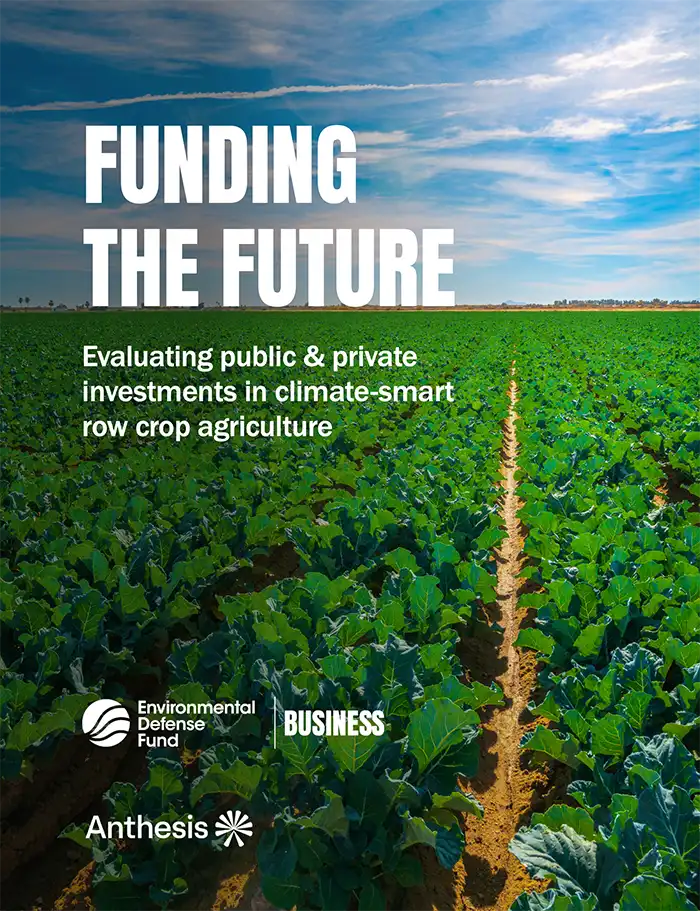Funding the future: Evaluating public & private investments in climate-smart row crop agriculture
Funding the Future: Evaluating public & private investments in climate-smart row crop agriculture
New Environmental Defense Fund analysis of climate-smart investments in U.S. row crops unearths strategic opportunities for the private sector to accelerate climate action and future-proof agricultural supply chains.
As the U.S. faces potential rollbacks of public investment in climate-smart agriculture, food and agriculture companies have a critical window of opportunity to double down on strategies to fill the gap and scale private sector investments.
The urgency for investment is rapidly growing as the agriculture sector finds itself on the frontlines of a hotter planet. Extreme weather is already impacting U.S. crop output, farmer livelihoods, and the economy, with $21 billion in crop losses recorded in 2023 alone.
Environmental Defense Fund’s timely new analysis, “Funding the Future: Evaluating public & private investments in climate-smart row crop agriculture,” offers much-needed guidance for the private sector, highlighting strategic investment opportunities to accelerate climate action and enhance supply chain resilience in U.S. row crops.
Mind the funding gap: Major opportunities for private sector impact
- This analysis uncovered an enormous funding gap, spotlighting a major opportunity for strategic investment from the private sector.
- Several studies have estimated the financial needs for the climate transition in the agriculture sector, ranging from $200 billion per year to $1.2 trillion per year globally. Unfortunately, current climate funding to global agrifood systems is very low, with an annual average of about $28.5 billion in 2019/2020.
- The research also discovered an over-investment in practices whose emissions benefits are insufficient on their own to deliver greenhouse gas reduction goals, such as cover cropping and no-till. Meanwhile, other interventions promising deeper reductions in carbon dioxide from on-farm fossil fuel usage and nitrous oxide emissions from fertilizer remain relatively underfunded.
- The research further found several overlooked opportunities for food companies to accelerate progress toward climate targets.
Overlooked climate-smart interventions
This analysis uncovered several relatively under-invested interventions that promise a high impact on emissions reductions in the U.S. row crop space. Food & agriculture companies seeking the most impactful climate strategies should explore investments in the following:
- Working with farmers to build other risk management solutions to prevent overapplication of nutrients, to both assure yields for farmers and reduce nitrogen from fertilizer.
Fertilizer use reduction on U.S. cropland is a critical intervention to reduce emissions of nitrous oxide, a potent greenhouse gas over 300 times more powerful than carbon dioxide in the near term. - Reducing embedded and on-farm fossil carbon.
Fertilizer manufacturers can utilize electricity sourced from renewables. In the same way, farm equipment manufacturers need to invest in a shift away from dependence on costly and polluting fossil fuels. - Transforming business models to scale climate-smart outcomes.
Agribusinesses can transition from outmoded approaches of volume of sales to strategies focused on delivering services that accelerate sustainable outcomes. Companies could partner with agriculture technology companies to promote education on supplier-wide adoption of nutrient management programs and precision technologies. In addition, seed manufacturers can pre-competitively pursue advanced crop genetics that reduce nitrous oxide.Many companies and agribusinesses have set science-based targets for food, land, and agriculture and can leverage investments in these new models of business in pursuit of these targets.
Contact EDF’s row crop experts today
As the food sector faces increasing supply chain volatility and grapples with potential rollbacks of public climate funding, the urgency for responsible business leaders to scale investment in climate-smart agriculture is only growing. Reach out to EDF today to explore how your company can prioritize the most strategic investments for impact.
"*" indicates required fields



